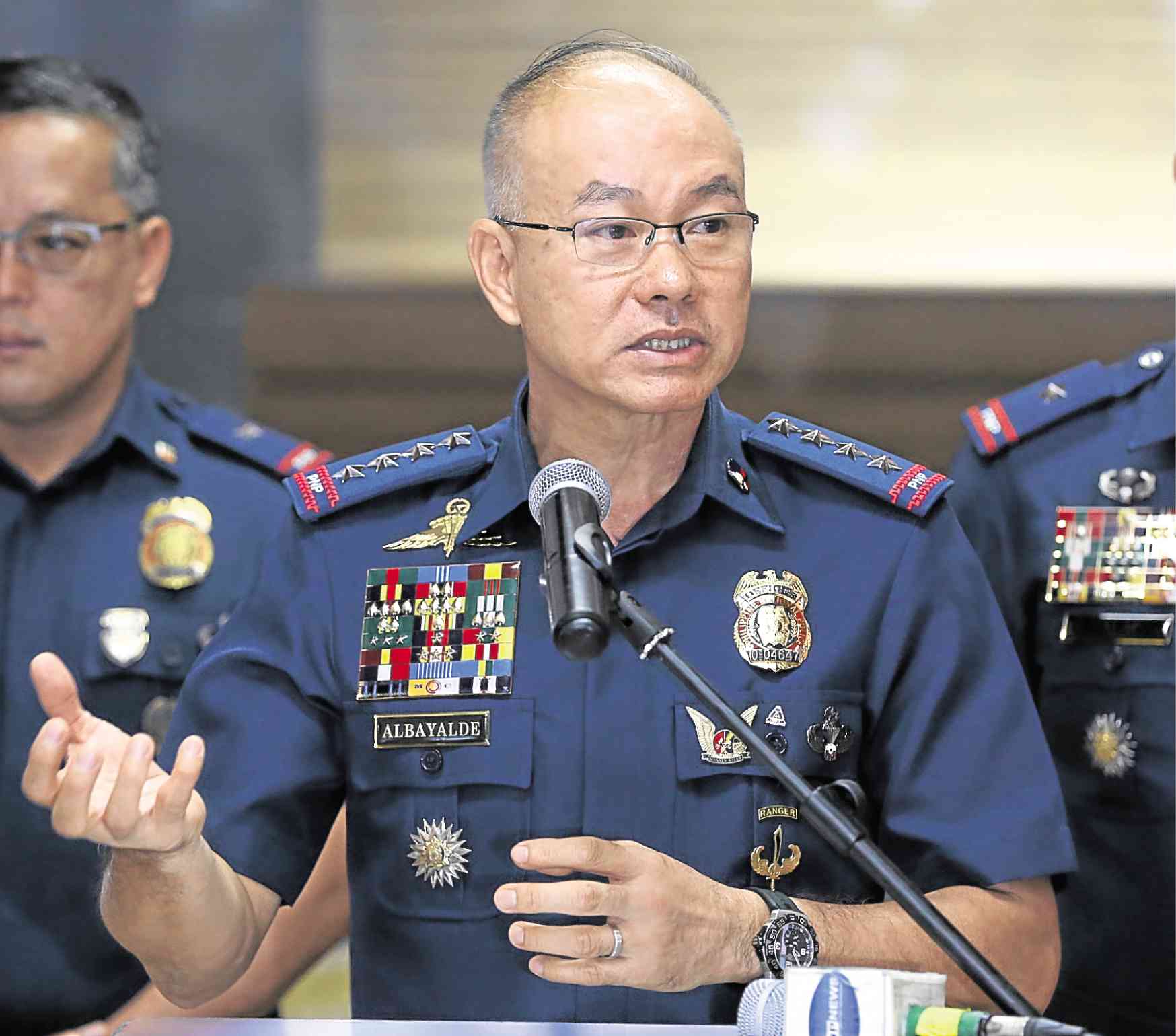PNP to ‘get in touch’ with proponents of Ateneo study on drug war

PNP chief Police Gen. Oscar Albayalde. INQUIRER file photo
MANILA, Philippines — The Philippine National Police (PNP) will “get in touch” with the proponents of a study from the Ateneo de Manila University that discussed the legal framework of the war on drugs and how it allegedly violates rights guaranteed by the Constitution.
PNP chief General Oscar Albayalde said this on Monday, as he also stressed that the PNP is “willing to listen and engage” all sectors, including the academe, that are willing to assist the organization in the fight against illegal drugs.
“I have directed the Director of Operations Major Gen. Mao Aplasca and the Director of Police Community Relations Major Gen. Benigno Durana Jr. to get in touch with the proponents of the study for a discussion to further improve our campaign,” Albayalde said in a press briefing at Camp Crame.
According to Albayalde, the PNP does not have a monopoly of intelligence and strategy in the drug war.
But despite being open for suggestions, he dismissed the claim of the study that the “Oplan Tokhang” or the house-to-house visits by police officers to the homes of drug dependents violates several constitutionally guaranteed rights.
“They are not the proper body or authority to say that it is unconstitutional or not. Hindi po sila ang Supreme Court (They are not the proper body to say that it is unconstitutional or not. They are not the Supreme Court),” Albayalde said.
He said drug dependents being subjected to “Oplan Tokhang” were not being forced to surrender.
“Paulit-ulit po nating sinabi. That is voluntary in nature. Wala pong ginamit na pwersa dito (We have been saying it always. That is voluntary in nature. We don’t use force here),” he said.
He also complained regarding the studies of academic organizations on the government’s centerpiece campaign, saying that the PNP is only being invited during presentations and not being sought for comment during the creation of the study.
“That’s why dapat dito ay ma-engage, exchange of ideas, it’s a discussion. When we say discussion, it’s two ways dapat,” he said.
(We should be engaged here. There should be exchange of ideas; it’s a discussion. When we say discussion, it should be two-way.) /je
RELATED STORY
Academe-led database: Over 7,000 suspects killed in 3-year drug war